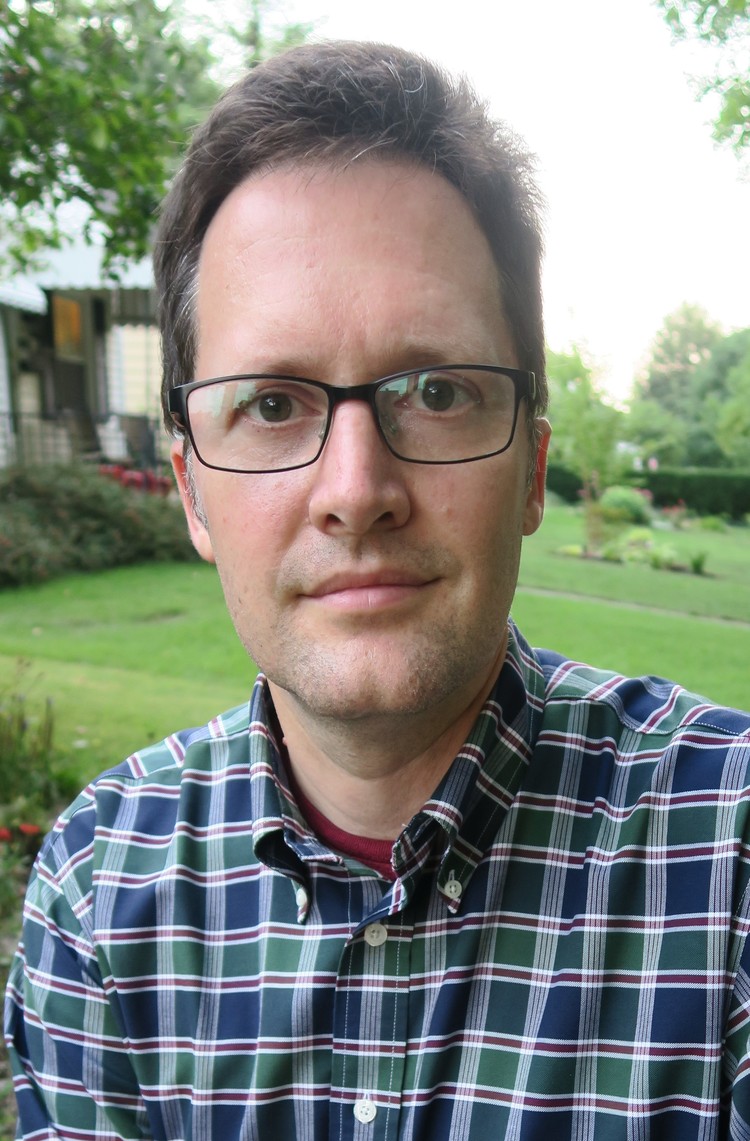In memory of the September 11th attacks, storySouth is taking part in a massive blogger initiative to honor all 2,996 victims. Several thousand bloggers have each agreed to honor one of these people. It is my honor to write about Gopalakrishnan Varadhan, who was killed in the north tower of the World Trade Center. He was 32 years old.
But this elegy isn’t about how Gopal Varadhan died. Rather, it is about his life—and how the lives of all the people who died in the Sept. 11 attacks continue to ripple through the lives of those who remain.
Gopal Varadhan was the oldest son of Raghu and Vasu Varadhan, both professors at New York University. Gopal grew up in New York and attended the Bronx High School of School. Along with his younger brother, Ashok, he spent many summers visiting his grandparents in the Southern Indian city of Chennai. His younger brother described the city as having “Mosquitoes that seemed the size of hummingbirds, exhausting heat and … unreliable electricity.” Despite that, he said the brothers always had fun as they spent their time “absorbed in themselves … and impersonating relatives’ nuances.”
From an early age Gopal was a dedicated musician. According to his mother, as a teenager Gopal soundproofed his room with egg cartons so he could play his acoustic guitar without disturbing people. While still in high school, he started a “ska-inspired band” called City Beat, in which he played a Fender Telecaster. His band cut a record and played at a number of influential clubs in New York, including CBGB & OMFUG on Bowery Street.
Gopal eventually worked as an engineer on controversial punk rock star G.G. Allin’s “Hated In The Nation” album. This compilation CD became Allin’s first widespread international release and is the most popular item in Allin’s discography. Gopal continued to write songs throughout his life, eventually creating melodies “for which his girlfriend, Valerie Toscano, was to compose lyrics.”
However, music wasn’t Gopal Varadhan’s only passion. After graduating from high school, Gopal earned a bachelor’s degree in mathematics from New York University. After college he worked at Merrill Lynch, trading fixed-income derivatives. In 1999 he left the company to start an online advertising business.
In August 2001, Gopal joined Cantor Fitzgerald as Managing Director of its interest rate derivatives business in the United States. In that position he oversaw all of Cantor’s interest rate derivative products, including swaps, options and futures. His younger brother, Ashok Varadhan, said Gopal was excited about the challenges his new position would bring.
His younger brother also said that on Sept. 11, 2001, Gopal phoned him from his 105th-floor office in between the two terrorist attacks on the World Trade Center. “Basically, he knew that he was going to die,” Ashok Varadhan said. “He was affectionate, but at the same time, very worried.”
Ashok Varadhan added that Gopal “was about as good of a role model as a younger brother could ask for. He was all the things that big brothers are supposed to be—protective, caring and affectionate.”
This view of Gopal was echoed by Ramesh, who interviewed for a position with Gopal in the days before the attacks. According to Ramesh, they talked about music and Madras and other subjects. Gopal so impressed Ramesh that he said, “Man, I want to be like him when I’m his age”. Ramesh was especially amazed at how Gopal balanced so many things in his life and added that, “the human race is poorer for (his) loss.”
That is so true. Gopal Varadhan contributed so much to the world that even I, a man who never had to the honor to meet him, can see the influence he had over the lives of those around him. The world is truly a poorer place without him.
References
(Note: I am indebted to a number of references which detailed the life of Gopal Varadhan. In order to not break up the narrative flow, I have not placed footnotes in this elegy. All information, though, comes from the sources below.)
1) Cantor Fitzgerald Hires Gopal Varadhan as Managing Director of U.S. Derivatives Business. Business Wire; 8/7/2001. Accessed Sept. 8, 2006.
2) New York Times “Portraits of Grief”: Accessed Sept. 8, 2006.
3) Wikipedia, Hatred in the Nation article. Accessed Sept. 8, 2006. Gopal Varadhan is listed as an engineer in the album’s credits.
4) Gopalakrishnan Varadhan: A Talented Son and Big Brother by Nick Iyer, Newsday, April 12, 2002. Accessed Sept. 8, 2006.
5) SEPTEMBER 11, 2001 victims page for Gopalakrishnan Varadhan, comment by Ramesh posted on Feb. 15, 2006. Accessed Sept. 8, 2006.
Read Posts By Category
2005 comments
2006 comments
2007 comments
2008 comments
Alabama
Comments from Jason Sanford
On History
Story of the Week
books
LINKS
Related Concerns
Blackbird
DIAGRAM
H_NGM_N
Obsessive Consumption
Octopus
Oxford American
storySouth
Thicket
Typo
jakeadamyork.com
jasonsanford.com
Blogs by storySouth contributors
American Aquarium Drinker
Emerging Writers Network
Incertus (Amy Letter)
Maud Newton
Moorish Girl
Muse of Fire
The Unquiet Grave
Other Blogs of Note
32 Poems / Deborah Ager
Acephalous
Almost I Rushed Home…
Avoiding the Muse
Bad With Titles
Bemsha Swing
Bitch, PhD
Cahiers de Corey
Can of Corn
Central Repository
Shanna Compton
Ecritures Bleus
Equanimity
Geneva Convention Violations
HG Poetics
Home-Schooled by a Cackling Jackal
Ironic Points of Light
Jane Dark’s Sugar High
Jewishyirishy
Jim Behrle
Leaves of Grass
Limetree
Little Red’s Recovery Room
The Lovely Arc
Mike Snider’s…
My Life by Lyn Hejinian
Never Mind the Beasts
Odalisqued
One Million Footnotes
Poesy Galore
Poetry Blog
Poetry Hut
Poetry Postcard Project
Print Culture
Reli(e)able Signs
Riverfall
Ron Silliman’s Blog
A Slant Truth
She Likes to Push Words Together
Steve’s House of Love
Sturgeon’s Law
The Suburban Ecstasies
Sweat
Think By Feeling
This Is All Your Fault
Three Shots to the Heart
Tympan
Utter Wonder
Whimsy Speaks
Wooster Collective
Readers
Arts and Letters Daily
Movable Type 3.2

